It’s Mango Season in Govanhill
Artists, Ragini Chawla and Hussein Mitha have been facilitating mango workshops to explore the political and nostalgic elements of the fruit. To celebrate the mango in all its forms Rumpus Room hosted its very own mango party.
People sat beside each other in a row with one person in the middle holding a mango
By Samar Jamal | Photos by Miriam Ali
At this time of year, certain street corners around Govanhill and Pollokshields turn into pop up shops selling just one golden thing: the mango. Mango season runs from late April to early July and is particularly welcomed by those from the Indian and Pakistani communities where most of these fruits arrived from.
Fariya and Sahar of Parveen's hand out tubs of food at the mango party
Celebrating mango season, Rumpus Room hosted a mango party complete with South Asian melodies, games, an abundance of mangos, lassi and delicious food from Parveen’s (a Pakistani inspired vegan restaurant).
The party is one of many events taking place as part of Refugee Festival Scotland. Which aims to bring together people from various backgrounds across Scotland to form new friendships and build friendships and greater understanding between communities.
Read more: Events happening around the Southside as part of Refugee Festival Scotland
It was also a celebration of the sweet pulpy fruit finally coming into season and a continuation of the workshops at Rumpus Room that are in collaboration with the Our Shared Cultural Heritage (OSCH) project and Uronto, an artist-led collective in Bangladesh.
The workshops are for young people of South Asian heritage and are being led by artists Ragini Chawla and Hussein Mitha to explore the political and nostalgic elements of the mango which are imported from Pakistan and India.
Hussein explained how the mango has been used as a starting point to initiate an array of conversations about the importance of foods and their relation to culture and history: “It's almost unlimited what you can explore through a certain object. It was really interesting to hear everyone's memories of mangos and family events or big occasions.”
Hussein and Ragini have led three workshops exploring different themes, granting space for various perspectives and conversations. So far they have looked at mangos in relation to memory, labour and their history which has created space for a variety of discussions.
For some, the mango is more than just a fruit but a representation of autonomy and self expression. Hussein recalled, during a workshop, someone expressed that for them “mangos taste like freedom.”
Ragini touches on how the exchange with Uronto has allowed the group to gain different perspectives and hear the experiences of those who have: “grown up around mangoes because they have mango trees in their garden, whereas here it’s more seasonal and it’s very different.”
The group at Rumpus Room were also given a book from Uronto, written by Mahbub Siddiqui, which provides a history of mangos.
Sammy, who attended the workshops, spent time meticulously translating a few pages for the group to understand: “It was a lot harder than I thought. It was just meant to be a few sentences at first but then I ended up doing a whole extract.
“My favourite part has been doing the art because I usually spend most of my time in a lab so I don’t get much time for art.”
For Lorelai, who works with OSCH, the workshops granted a space to learn about the Scottish South Asian experience whilst also having critical conversations about caste in relation to food:
“It has been a space to reconnect with the foods that we eat and ask questions – like what memories do these foods hold for us and what memories do we feel. But also understanding how the food we eat comes to our table… Food also raises the question of who eats what.
“When we go back to the Indian subcontinent, you think about caste because it determines what position you hold in the society and what access you have. So besides geographical location and ethnic groups, caste is also a very significant feature and it is caste that defines norms around who eats what.”
Ragini adds that the workshops aren’t just a space for rigid learning, but to provide people with spaces like Rumpus Room: “They’re about creating spaces where people feel comfortable to come. Maybe it's more about that and not so much about things you do or learn but more about having a space to express what you want.”
Like the pit of the mango, expression is at the centre of the mango party. Expression that was visible in various forms with people at the party showing their fondness for the mango in a way that resonates with them.
It could be seen in the young people’s art work and their drawings of eating the fruit or blitzing it into a smoothie to be guzzled down. As well as the kids who had taken over the face painting table and were eagerly patching images of mangos onto cheeks.
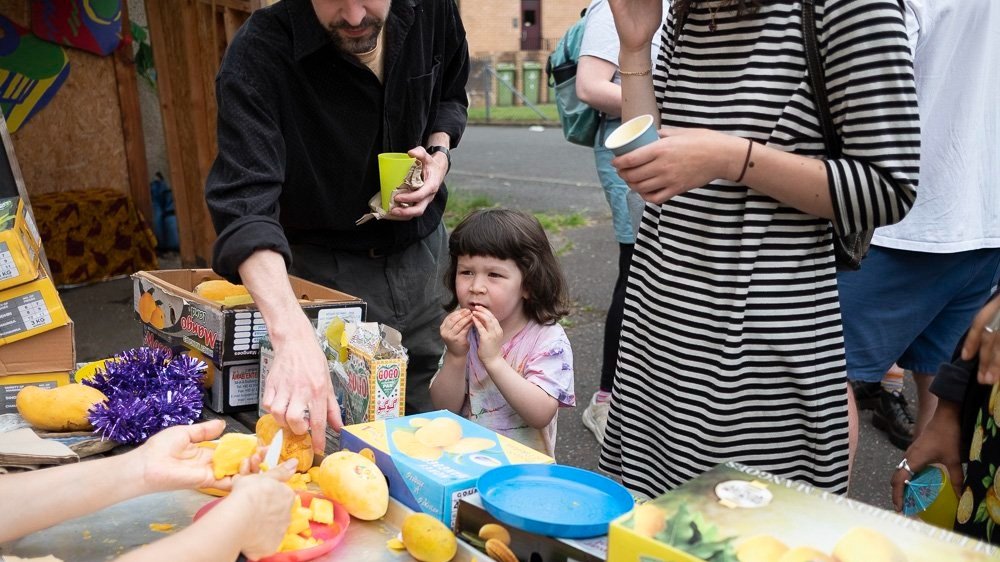
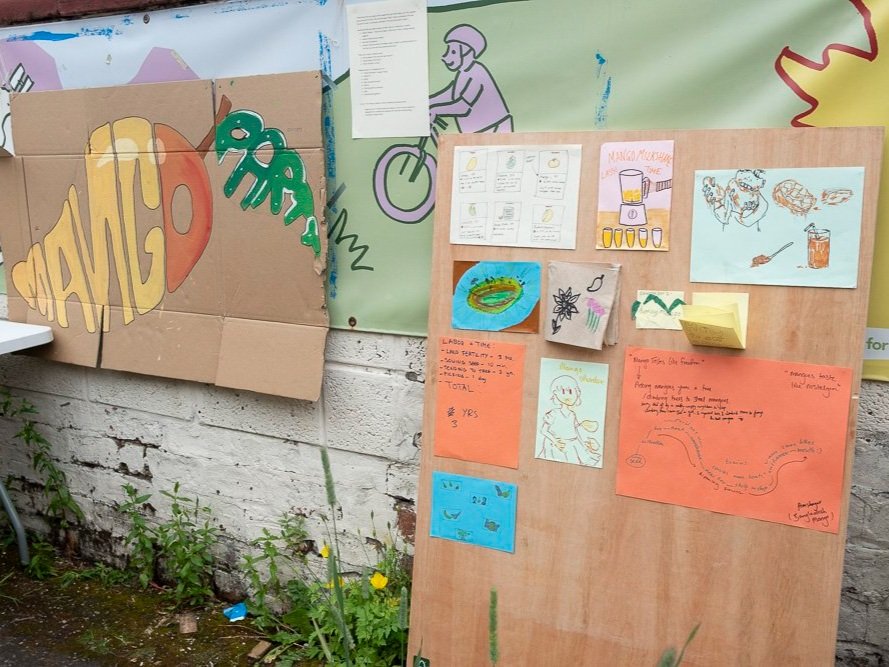
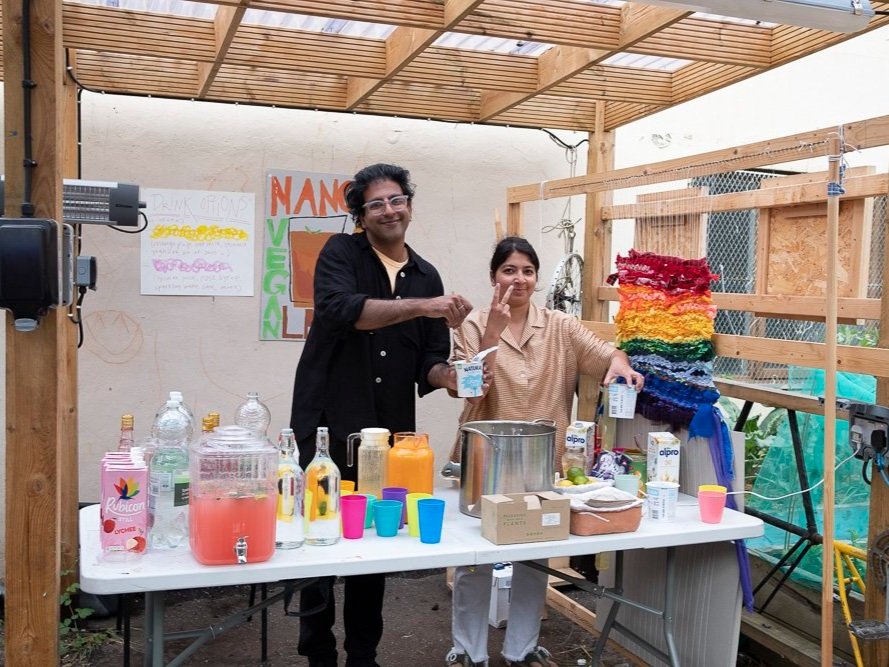
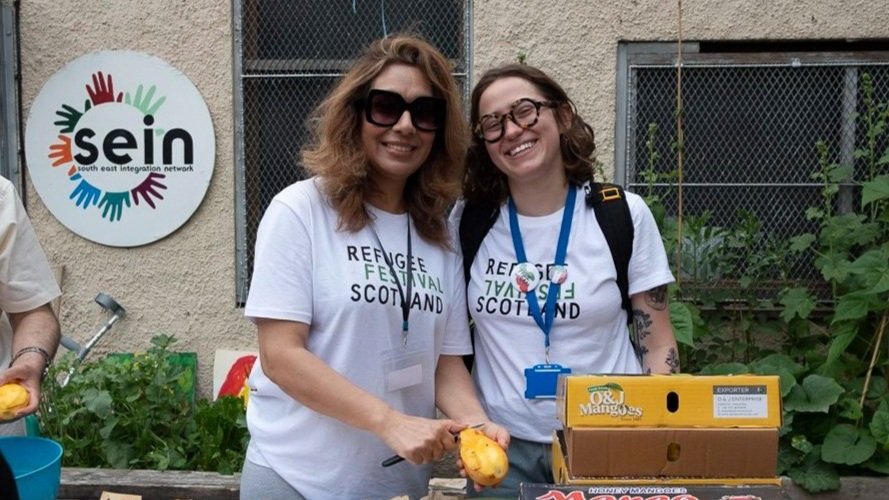
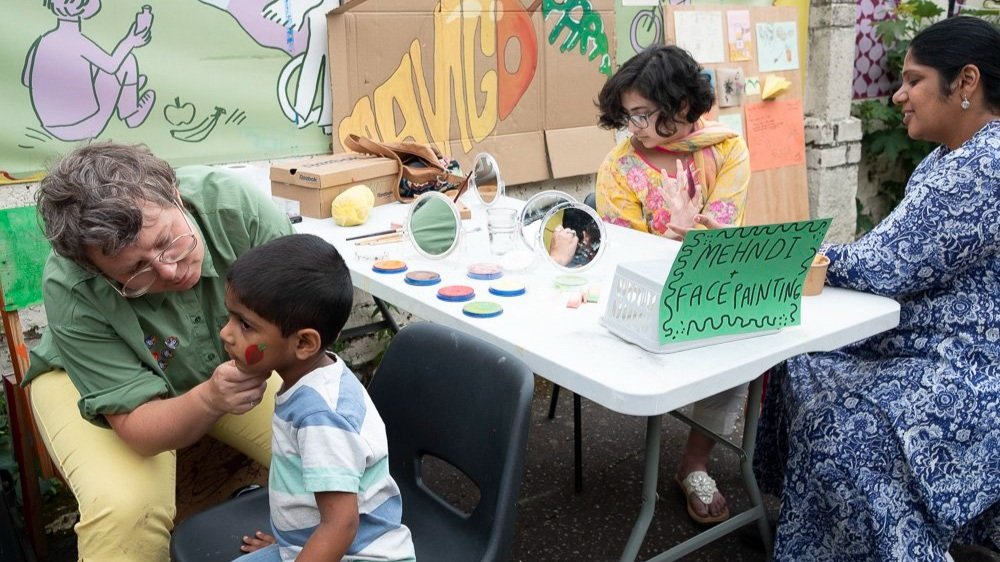
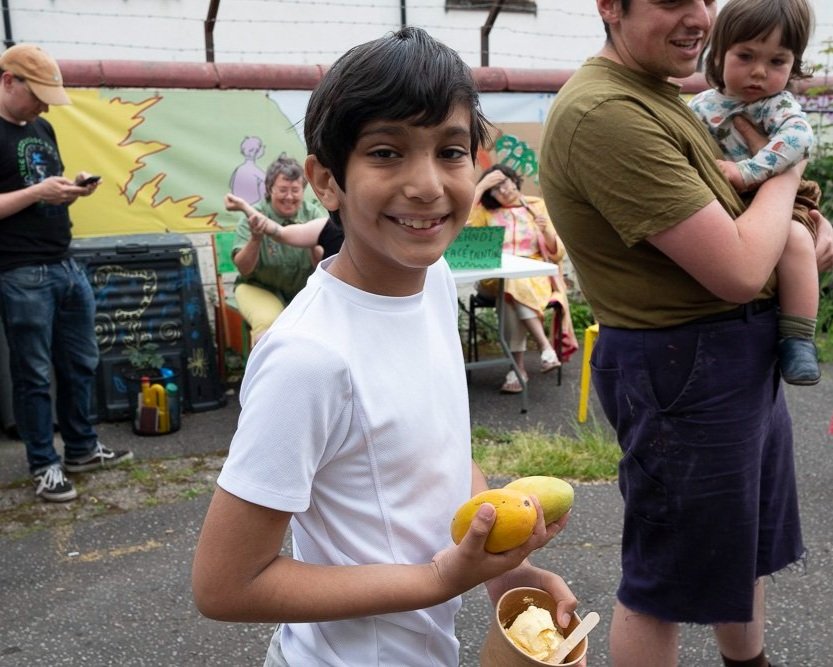
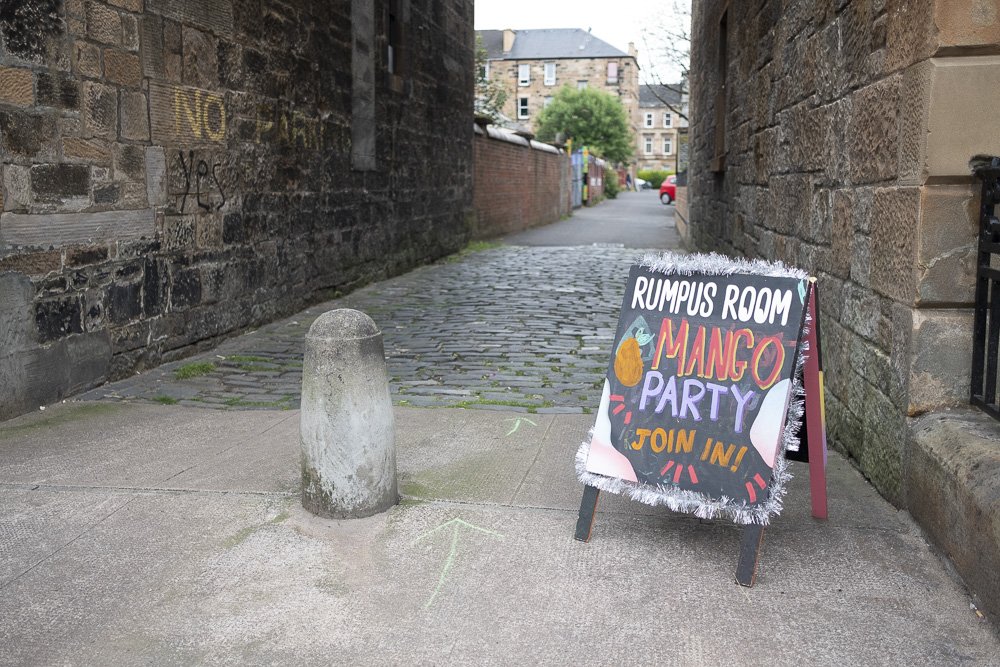
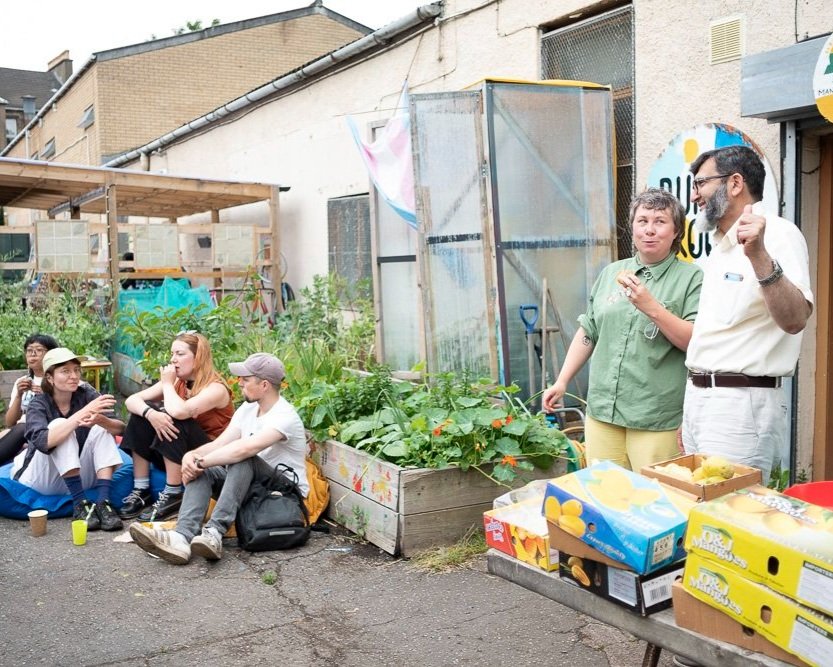
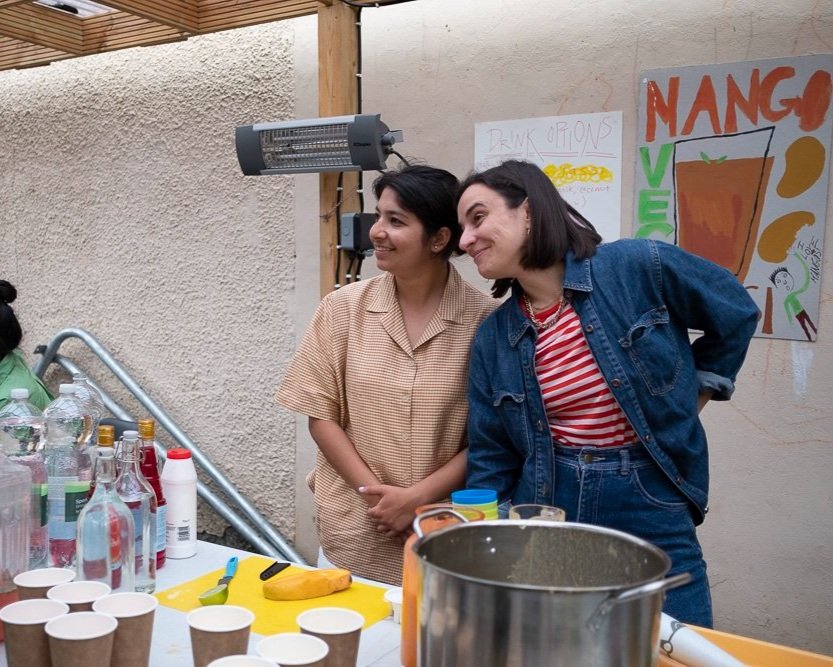
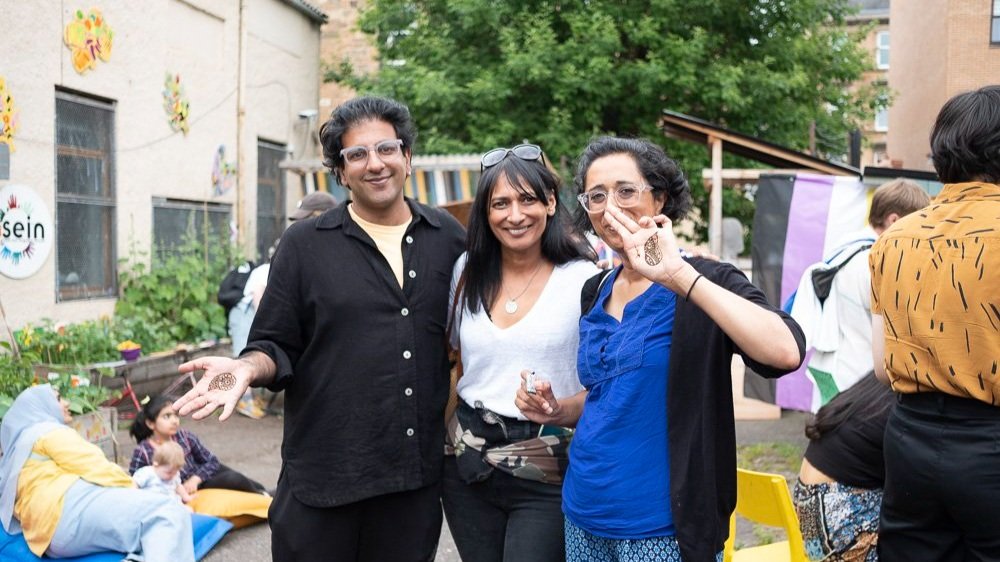
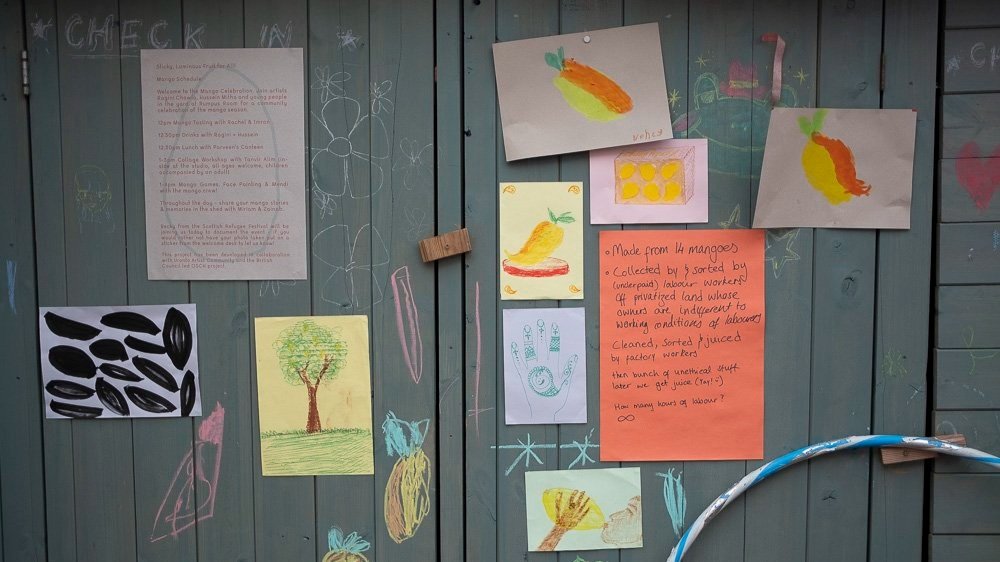
It was also visible with Imran, a Govanhill resident who helped buy the mangos and spent the day swiftly cutting them up and passing out pieces amongst the crowd.
In the last few workshops the group will explore the theme of climate through conversations with Uronto, Hussein explains:
“I think that'll be really good because we want to produce some sort of messages around climate justice and solidarity with people in the global South. So it'd be really good to also listen to that group in Bangladesh and hear about their concerns for the climate and the future. And also work out ways that our group can show solidarity and support. One idea that we had was to do climate justice posters with mangoes on them and have them around Govanhill.”
For more information on when the next workshop will take place visit Rumpus Room’s Instagram page.


